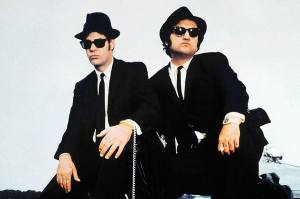Few of us like cleaning our own homes, so it’s scarcely surprising that the cleaner, or maid, occupies a particular place in our imagination. To those who resent the imposition of domestic hygiene as an intrusion on privacy, cleaners can be sinister and even vengeful presences — as famously depicted in Jean Genet’s play The Maids. For those who feel guilt over the structural inequalities of capitalism, Kathryn Stockett’s The Help added an extra dose of racism and feminism. But to those who see only the relief of having their dirt lifted by someone else, the cleaner is a bringer of joy who deserves everything from a Dior dress (Paul Gallico’s Mrs ‘Arris Goes to Paris) to a rich husband (the J.Lo vehicle Maid in Manhattan).
Where you fall along this line probably depends on your own moral compass, economic circumstances and experience. Nita Prose’s debut The Maid manages to steer among all three, thanks to the larky yet touching voice of its twenty-five-year-old narrator, Molly. An orphan brought up by her recently deceased grandmother, Molly has an old-fashioned turn of phrase and an obsessive personality that means she is “the last person anyone invites to a party.” Unable to decode people’s behaviors, lie, joke or leave a speck of disorder in her wake, Molly is the maid who discovers the murdered body of the Regency Grand Hotel’s richest client, Mr. Black.
Blending the maid’s story with that of the detective novel makes for a deliciously clever and entertaining read. Molly loves her uniform and her work alike. We feel her pleasure in her crisply starched, perfectly ordered and formally correct environment and attire. That this employment is in stark contrast to her impoverished and lonely life in a run-down New York tenement apartment where she is overdue with the rent is made poignantly clear.
Molly’s eccentricities suggest that she is on the autism spectrum, and as a good-hearted person in a dangerous city she takes care to notify an illegal Mexican immigrant working in the bowels of the hotel when a room is vacant. Unfortunately, she also has a terrible inability to spot dishonesty, something that has already led to the theft of the “Fabergé egg” savings intended for her college education.
There is just enough realism in the depiction of physical exhaustion that cleaning involves to make the narrative credible. Molly’s energy and optimism make The Maid a striking contrast to the Netflix series by the same name. What dooms the latter’s young, poor and exploited heroine is not just her lack of qualifications, but her being a single mother trying to escape from an abusive ex-partner.
As a dramatization of the evils described in Barbara Ehrenreich’s nonfiction bestseller Nickel and Dimed, Netflix’s The Maid is relentlessly misandrist, thereby winning the service its highest viewing figures since The Queen’s Gambit. Prose’s novel is very different. Molly is friendless, clueless and clings stubbornly onto her grandmother’s apartment by her fingernails. Yet the meticulously executed plot shows how, as well as solving the murder, she also saves her own financial and romantic future by being true to herself.
Cleaners have hovered (and hoovered) in the background of film and fiction for much of the twentieth century before coming sharply into focus with the pandemic, when most middle-class families experienced the abrupt cessation of paid help while working from home during lockdown. It remains a largely female labor, overlooked and underpaid even when, as in Alfonso Cuarón’s film Roma, the maid lies at the heart of the fractured family she serves. Molly’s adventures, which see her unjustly accused of murdering Mr. Black herself, lead the other hotel staff to realize how essential she is to their lives. And a clever twist at the climax saves it from being too predictable or saccharine.
The faithful, impeccable servant has always been a nostalgic fantasy, as evinced by P.G. Wodehouse’s immortal Jeeves and Wooster series, yet fictional staff can also be ideal spies — or detectives. Agatha Christie’s novel The 4:50 From Paddington has a young woman hired as a professional housekeeper in order to help Miss Marple solve a family murder. A recent British television series, Cleaning Up, starred Sheridan Smith as a redoubtable office cleaner who discovers insider trading in a stockbroking firm. And another Netflix hit, Lupin, initially makes its Parisian detective hero doubly invisible as a black cleaner.
The double-edged status of cleaners goes all the way back to Cinderella. Whether the emphasis falls on resenting a household whose comforts can never be your own, or on the fairy-tale escape into a brighter future, their story is always ambiguous. Which version of The Maid do you prefer? By now, you probably know the answer.
Amanda Craig’s new novel, The Golden Rule (which has a cleaner heroine) is published by Little, Brown and Co. This article was originally published in The Spectator’s January 2022 World edition.


















